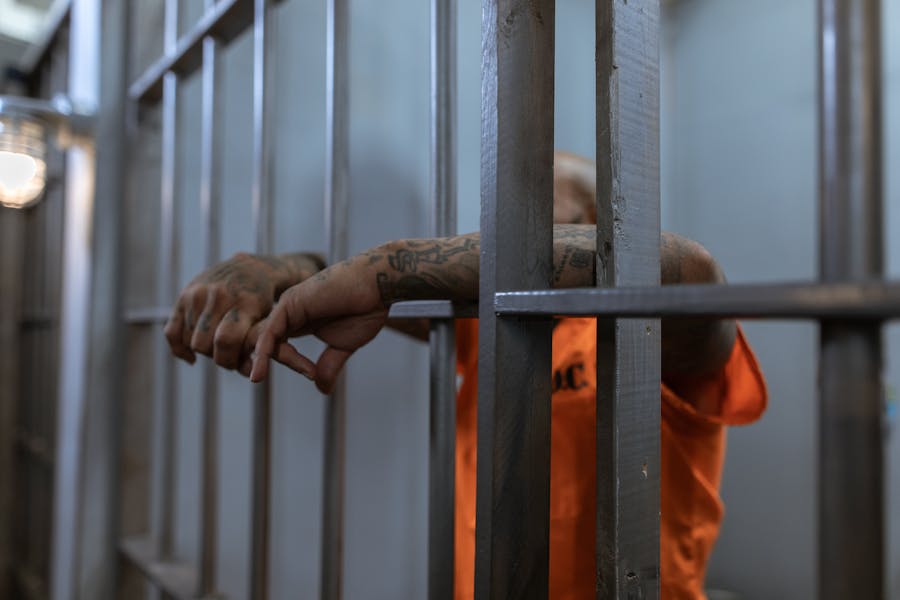What crimes usually get probation? Probation is a common alternative to incarceration in the criminal justice system, allowing offenders to avoid jail time under specific conditions. It is a form of supervised release where the individual remains under the watch of a probation officer and must adhere to certain rules and regulations. Understanding what crimes are more likely to lead to probation rather than imprisonment can help those facing criminal charges and provide insight into how the justice system seeks to balance punishment with rehabilitation.
In this comprehensive guide, we will explore the concept of probation, the types of crimes that often receive probation, the factors that influence probation eligibility, and the conditions typically imposed on those serving probation sentences.
What Is Probation?
Definition of Probation
Probation is a legal sentence that allows an individual to remain in the community instead of serving time in jail or prison. During probation, the person must follow specific rules, known as probation conditions, which are monitored by a probation officer. These conditions can vary depending on the crime committed, the individual’s criminal history, and the court’s decision.
The Purpose of Probation
The primary purpose of probation is to rehabilitate offenders while still holding them accountable for their actions. It offers a second chance for individuals who may not pose a significant risk to society, enabling them to maintain employment, attend educational programs, and fulfill other responsibilities. Probation also helps reduce the costs associated with incarceration and mitigates prison overcrowding.
Types of Probation
Probation can take several forms:
- Supervised Probation: The offender is required to regularly meet with a probation officer who monitors their progress.
- Unsupervised Probation: Also known as informal probation, where the individual does not need to regularly check in with a probation officer but must still follow the court’s conditions.
- Intensive Probation: A stricter form of probation with more frequent check-ins and additional requirements, often used for higher-risk offenders.
Factors That Influence Whether a Crime Gets Probation
Severity of the Crime
The seriousness of the offense plays a significant role in determining whether probation is an option. Generally, non-violent, less severe crimes are more likely to result in probation, while violent crimes or those causing significant harm to victims often lead to harsher penalties.
First-Time Offender vs. Repeat Offender
Courts are more likely to grant probation to first-time offenders, especially if they have no prior criminal record. Repeat offenders may face stricter sentencing because their history suggests a pattern of unlawful behavior. However, exceptions exist, and a skilled defense attorney can sometimes negotiate probation for repeat offenders under specific circumstances.
Circumstances of the Crime
The context in which the crime occurred can affect whether probation is granted. For example, if there are mitigating factors, such as acting under duress or lack of intent to cause harm, the court may be more inclined to offer probation. Conversely, aggravating factors, such as using a weapon, can reduce the chances of probation.
Plea Bargaining
Plea deals often include negotiations for probation. If the defendant pleads guilty to a lesser charge, the prosecution may agree to recommend probation instead of jail time. This process helps reduce the caseload for courts and offers a way for defendants to avoid harsher penalties.
Common Crimes That Usually Get Probation
Non-Violent Drug Offenses
Drug-related offenses, particularly those involving possession of small quantities, are among the most common crimes that lead to probation. Courts often prefer to focus on rehabilitation rather than punishment for drug offenders, especially first-time offenders. For example, individuals caught with small amounts of marijuana or prescription drugs without a prescription may be eligible for probation, often coupled with mandatory drug treatment programs.
Theft and Property Crimes
Crimes such as shoplifting, petty theft, vandalism, and trespassing frequently result in probation sentences. When the offense is non-violent and the stolen goods or property damage is of relatively low value, courts may be inclined to sentence the offender to probation, especially if it is their first offense. Restitution, community service, or other rehabilitative conditions may also be part of the probation terms.
White-Collar Crimes
White-collar crimes, including fraud, embezzlement, and insider trading, can sometimes lead to probation, particularly for first-time offenders or those whose actions did not cause significant financial harm. The courts may consider factors like the amount of money involved, the defendant’s role in the crime, and their cooperation during the investigation when determining the sentence.
DUI and Traffic Violations
Driving under the influence (DUI) and other traffic-related crimes, such as reckless driving or driving without a license, can lead to probation sentences. Probation for DUI often includes mandatory alcohol education courses, community service, and strict conditions, such as avoiding further alcohol-related offenses. Probation allows offenders to avoid jail time while taking steps to correct their behavior.
Domestic Violence and Assault (Misdemeanor Cases)
In cases of misdemeanor domestic violence or assault, courts may opt for probation over incarceration, particularly if it is a first offense. Probation for such cases usually comes with stringent conditions, such as completing anger management or domestic violence intervention programs. It is important to note that felony-level domestic violence or assault cases are less likely to result in probation unless there are significant mitigating factors.
Conditions of Probation
Standard Probation Conditions
Standard conditions for probation typically include:
- Regular Check-Ins: Offenders must regularly report to a probation officer, either in person or through other communication methods.
- Maintaining Employment or Education: Courts often require offenders to hold a job or continue their education during probation.
- Drug and Alcohol Testing: Regular testing ensures that the individual remains sober during their probation period.
- Travel Restrictions: Offenders may need permission from their probation officer to travel outside a designated area.
Special Conditions Based on the Crime
In addition to standard conditions, courts can impose special requirements depending on the nature of the offense. For example:
- Mandatory Rehabilitation: For drug-related crimes, probation may include enrolling in a drug treatment program.
- Anger Management Classes: For assault or domestic violence cases, attending anger management courses may be mandatory.
- Restitution Payments: Offenders may need to compensate victims for any financial losses caused by their actions.
Consequences of Violating Probation
Failing to comply with probation conditions can lead to serious consequences, including the possibility of jail time. If an individual violates probation, the court can revoke the probation and impose the original jail sentence. Violations can include missing meetings with a probation officer, failing drug tests, or committing another crime.
Advantages and Disadvantages of Probation
Advantages of Probation
- Rehabilitation Opportunities: Probation provides offenders with the chance to access rehabilitation programs, such as counseling or addiction treatment, helping them reintegrate into society.
- Ability to Maintain Employment: Offenders on probation can continue working or attending school, which helps them support themselves and their families.
- Cost-Effectiveness: Probation reduces the financial burden on the criminal justice system by avoiding the costs associated with incarceration.
Disadvantages of Probation
- Strict Conditions: Probation can come with stringent conditions that, if violated, lead to severe penalties.
- Risk of Reoffending: Probation may not always prevent recidivism, and there is a risk of reoffending, especially if the individual does not receive adequate support.
- Public Perception: Some view probation as a “slap on the wrist,” believing it may not provide enough accountability or deterrence for serious crimes.
How to Increase the Chances of Getting Probation
Cooperation with Law Enforcement
Defendants who cooperate with law enforcement and show a willingness to take responsibility for their actions may be more likely to receive probation. Demonstrating accountability can lead to more lenient sentencing.
Hiring a Competent Defense Attorney
An experienced defense attorney can negotiate plea deals, advocate for probation, and help craft a case that highlights mitigating factors. Effective legal representation is crucial in increasing the chances of securing probation.
Showing Remorse and Willingness to Rehabilitate
Courts are more likely to grant probation to individuals who express genuine remorse for their actions and are willing to participate in rehabilitation programs. This can include attending counseling, addiction treatment, or other programs before the court mandates them.
Conclusion
So, what crimes usually get probation? Generally, non-violent offenses, first-time misdemeanors, and cases where the defendant shows a willingness to rehabilitate are more likely to receive probation. Probation serves as a balance between punishment and the opportunity for individuals to correct their behavior without facing the full extent of jail time. However, probation comes with strict conditions, and violating them can lead to serious consequences. If you or someone you know is facing criminal charges, consulting with a qualified attorney can help navigate the legal process and explore the possibility of probation.
FAQ’s
Q1: Can violent crimes ever result in probation?
- In rare cases, certain violent crimes may result in probation, especially if there are mitigating factors, such as self-defense or lack of prior criminal history. However, this depends on the severity of the crime and judicial discretion.
Q2: What happens if I violate probation conditions?
- Violating probation can lead to probation revocation, resulting in jail time or additional penalties. The specific consequences depend on the severity of the violation.
Q3: Is probation always an option for first-time offenders?
- While probation is more likely for first-time offenders, it is not guaranteed. Factors like the nature of the crime and prior behavior can affect eligibility.
Q4: Can probation be terminated early?
- Yes, in some cases, if an offender complies with all conditions and demonstrates good behavior, they may petition the court for early termination of probation.







